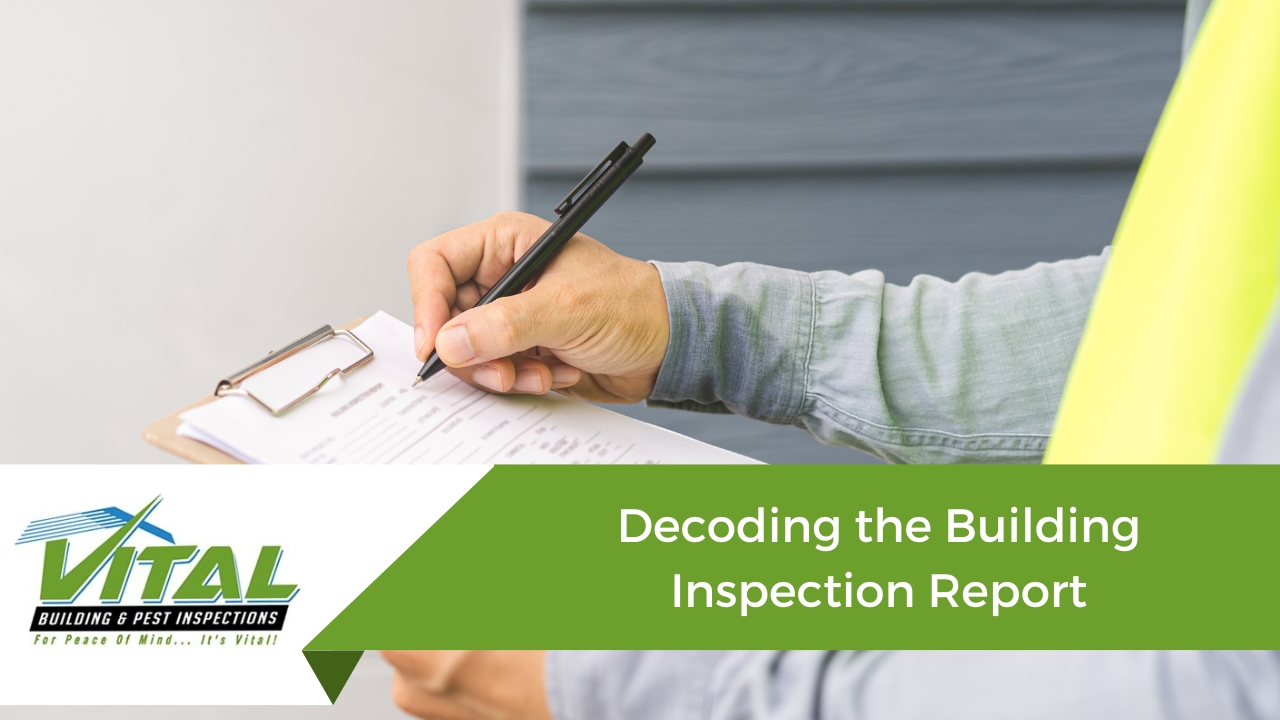Navigating a building inspection report can often feel like cracking an intricate code. Containing essential information about the condition of your property, these reports are critical tools in any home buying or selling process.
This guide will unlock the mysteries within each section of the report, giving you confidence to make informed decisions. Ready to decipher your way through? Let’s dive in!
Key Takeaways
- Building inspection reports are essential tools in the home buying or selling process as they provide a comprehensive assessment of a property’s condition and potential issues.
- Obtaining a comprehensive building inspection report has numerous benefits, including peace of mind, making informed decisions, and protecting your investment.
- It is crucial to understand how to read and interpret building inspection reports, identify red flags that indicate potential issues or defects, and address incomplete or vague reports promptly.
- Choosing a qualified and licensed building inspector from an independent inspection company ensures unbiased assessments, expertise in relevant regulations, and prioritisation of customer satisfaction. Specialised inspections like building and pest assessments provide more accurate evaluations.
Understanding Building Inspection Reports
A building inspection report is a detailed document that provides information about the condition and potential issues of a property.

What is a building inspection report and its purpose?
A building inspection report is an informative document prepared by a licensed professional that provides a thorough assessment of your property. Essentially, it’s like the medical check-up for your house, offering good insights about its current health status and identifying any potential issues down the line.
This comprehensive report tells you all you need to know about structural elements, mechanical systems like heating or cooling units, electrical wirings and plumbing fixtures in your home before making any big decisions such as selling or renovating your home.
It plays an instrumental role in aligning with New South Wales’ house inspection rules whilst keeping property owners well-informed about their prised possession’s value and needed repairs if any.
As per NSW home building regulations, this report is often required to be presented when putting out offers on properties – ensuring both parties involved are aware of what they’re signing up for.
Benefits of obtaining a comprehensive building inspection report
Obtaining a comprehensive building inspection report has numerous benefits for home owners. Firstly, it gives you peace of mind knowing the true condition of your property. These reports are prepared by professional inspectors who thoroughly assess every aspect of the building, from its structure to its electrical and plumbing systems.
By obtaining this report, you can identify any potential issues or defects that may exist, allowing you to address them before they become major problems.
In addition to providing valuable insights into your property’s condition, a building inspection report also helps in making informed decisions. It provides detailed information about the property’s compliance with inspection requirements and can be used as leverage during negotiations if there are any repairs or maintenance needed.
Moreover, if there are unsolvable problems identified in the report, it allows you to reassess whether the property is worth investing in.
Ultimately, obtaining a comprehensive building inspection report ensures transparency and protects your investment. Whether you’re buying or selling a property, having this report in hand gives you an accurate assessment of its condition and helps avoid any surprises down the line.
So don’t overlook the importance of getting a thorough inspection done – it could save you time, money, and headaches in the long run.

What a good building report should include
A good building report should include a detailed assessment of the property’s condition, outlining any issues or defects that need attention. It should cover not only the structure of the building but also its mechanical, electrical, and plumbing systems.
The report should provide clear and concise explanations of each problem identified, along with recommended solutions or repairs. Additionally, it should include photographs or diagrams to support the findings and help homeowners better understand the issues at hand.
A comprehensive building report will give you peace of mind by providing all the necessary information about your property’s compliance with inspection requirements.
Interpreting Building Inspection Reports
When reading a building inspection report, it is crucial to understand and interpret the information provided.
How to read and understand a building inspection report
Reading and understanding a building inspection report may seem daunting, but with some guidance, you can make sense of it all. Start by reviewing the summary section which provides an overview of the main findings.
Then, dive into each section, focusing on areas such as structural integrity, electrical systems, plumbing, and more. Pay attention to any red flags or defects mentioned in the report. Look for specific details and recommendations from the inspector about repairs or further evaluations needed.
Keep in mind that not all issues are deal-breakers; some may be minor and easily fixable while others may require more attention. If anything is unclear or you have questions about certain terms or jargon used in the report, don’t hesitate to reach out to your inspector for clarification.
Identifying red flags on building reports
One of the most important aspects of understanding a building inspection report is being able to identify any red flags that may be present. These red flags are warning signs that indicate potential issues or defects in the property.
It’s crucial for homeowners to be aware of these red flags so they can make informed decisions about their investment.
When reviewing a building inspection report, keep an eye out for any mention of structural issues such as cracks in the walls or foundation, sagging floors, or signs of water damage. These could indicate significant problems that might require costly repairs down the line.
Additionally, pay attention to any electrical or plumbing issues mentioned in the report, as these can also be expensive and time-consuming to fix.
Another red flag to watch out for is evidence of pests such as termites or rodents. Infestations can cause extensive damage and compromise the integrity of a property if left untreated. Make sure to carefully review any pest-related findings in the report and consider seeking professional advice if necessary.
Lastly, don’t overlook any mentions of safety hazards or non-compliance with building codes and regulations. These violations could pose risks for you and your family’s well-being and may lead to additional expenses if corrective measures are needed.
Dealing with incomplete or vague reports
If you come across an incomplete or vague building inspection report, it’s essential to address the issue promptly. These types of reports may lack crucial details or fail to provide a clear assessment of the property’s condition.
To ensure you make informed decisions about your potential purchase, consider contacting the inspector for clarification on any unclear findings. It’s also wise to request additional information or even a reinspection if necessary.
Remember, a comprehensive and detailed report is vital in identifying any hidden issues with the property and protecting your investment.

Choosing a Reliable Building Inspector
When it comes to choosing a reliable building inspector, make sure you select someone who is qualified and licensed to ensure a thorough assessment of your property. Don’t settle for anything less than the best when it comes to protecting your investment.
Read on to discover the benefits of independent building inspection companies and their specialisation in areas like building and pest inspections.
Importance of selecting a qualified and licensed inspector
It is of utmost importance to select a qualified and licensed inspector when it comes to conducting a building inspection. These professionals have the necessary expertise and knowledge to thoroughly evaluate a property’s condition.
A qualified inspector will be well-versed in the applicable building codes, regulations, and standards, ensuring that the inspection is conducted accurately and comprehensively. By choosing a licensed inspector, homeowners can have confidence in the credibility and reliability of their findings, providing peace of mind during important decision-making processes.
The benefits of independent building inspection companies
Independent building inspection companies offer several advantages for homeowners. Firstly, these companies provide unbiased and objective reports. They have no affiliations with property sellers or real estate agents, ensuring that their assessments are not influenced by any external factors.
This means that homeowners can trust the accuracy and reliability of the inspection report.
Secondly, independent building inspectors are highly qualified professionals who specialise in assessing properties. They have extensive knowledge of building codes and regulations, allowing them to identify any potential issues or defects accurately.
Their expertise enables them to provide comprehensive reports that cover all aspects of a property’s condition.
Lastly, independent inspectors prioritise customer satisfaction. They understand the importance of timely delivery and clear communication throughout the process. Homeowners can expect prompt service and detailed explanations regarding any findings in the report.
Specialisation in areas like building and pest inspections
Building and pest inspections are crucial when it comes to assessing the condition of a property. These specialised inspections focus on identifying any structural issues or infestation problems that may exist in the building.
While a general building inspection report covers various aspects of a property, including its structure and systems, building and pest inspection reports delve deeper into specific areas. By specialising in these areas, inspectors can provide more accurate assessments and recommendations for repairs or treatments if needed.
So, when it comes to ensuring the thorough evaluation of your potential home, don’t overlook the importance of specialised inspections like building and pest assessments.
Leveraging Building Inspection Reports
Use the report to negotiate or make informed decisions regarding property purchase, addressing any unsolvable problems and considering the impact on pre-approved finance.
Using the report to negotiate or make informed decisions
One of the most valuable aspects of a building inspection report is its ability to empower you as a homeowner to negotiate and make informed decisions. Armed with the detailed information provided in the report, you can confidently engage in discussions with sellers or agents about potential issues or defects that have been identified.
Whether it’s negotiating a lower purchase price or requesting repairs before finalising the deal, the building inspection report gives you leverage and helps ensure that you are making an informed decision about your investment.
Additionally, this comprehensive report allows you to prioritise any necessary repairs or maintenance tasks once you become the owner, giving you peace of mind knowing that your new home is safe and structurally sound.
Dealing with unsolvable problems in a building report
If your building inspection report uncovers a problem that seems unsolvable, don’t panic just yet. While it may be disheartening to discover a major issue with the property you were considering, there are still steps you can take to navigate this situation.
First and foremost, consult with the building inspector who prepared the report. They will be able to provide you with further insights and potential solutions for addressing the problem.
Next, consider seeking additional professional opinions from experts in the field. Consulting with contractors or specialists who have experience in dealing with similar issues can help shed light on possible remedies or alternative options.
It’s important to remember that not all problems uncovered in a building inspection report are deal-breakers. Some issues may be relatively simple and cost-effective to fix, while others may require more extensive repairs or renovations.
Assessing the severity of the problem and weighing it against your own priorities and budget constraints is essential in making an informed decision moving forward.
Lastly, if you decide to proceed despite the unresolved issue, negotiate with the seller regarding repairs or price adjustments based on estimates provided by professionals. This way, you can address any financial concerns associated with resolving these problems.
Impact of a bad report on pre-approved finance
A bad building inspection report can have a significant impact on your pre-approved finance. Lenders often rely heavily on the results of these reports to determine the value and condition of the property.
If the report reveals major defects or structural issues, it could affect your ability to secure financing for the purchase. This is especially true if the lender deems the property uninhabitable or requires costly repairs before approving the loan.
It’s crucial to carefully review any negative findings in a building inspection report and consider their potential implications on your financial plans.

Cost and Timing of Building Inspection Reports
Building inspection reports in New South Wales can vary in cost depending on factors such as the size of the property, its location, and the complexity of the inspection. The timing of receiving a building inspection report also varies, with most inspectors providing it within 24 to 48 hours after conducting the inspection.
Factors influencing the cost of a building inspection report
The cost of a building inspection report can vary depending on several factors. The size and type of the property are key considerations, as larger or more complex buildings may require more time and expertise to inspect thoroughly.
Additionally, the location of the property can also impact the cost, with inspections in certain areas potentially costing more due to higher demand or specific requirements. Another factor is whether additional inspections, such as pest or electrical inspections, are included in the package.
It’s important to remember that while price is a consideration when choosing an inspector, it should not be the sole determining factor. Quality and experience should also play a significant role in your decision-making process to ensure you receive a detailed and unbiased building inspection report that provides valuable information about your potential investment.
When to expect the report and payment requirements
Once the building inspection is complete, you’re probably eager to get your hands on the report. Generally, you can expect to receive the report within a few days of the inspection. The exact timeline may vary depending on factors such as the size and complexity of the property.
When it comes to payment requirements, it’s essential to discuss this with your chosen building inspector beforehand. Typically, payment is made upon completion of the inspection or before receiving the report.
It’s important to clarify these details upfront so that there are no surprises down the line.
Ensuring a detailed and unbiased building report
One of the most crucial aspects of obtaining a building inspection report is ensuring that it is detailed and unbiased. When it comes to such an important document, you want to be certain that all aspects of your property have been thoroughly assessed and reported on accurately.
A detailed building report will provide you with comprehensive information about the condition of your property, from structural integrity to plumbing and electrical systems. This can help you make informed decisions about potential repairs or renovations.
It’s also important for the report to be unbiased, meaning that it offers an objective assessment without any conflicts of interest. By selecting a qualified and licensed inspector who operates independently, you can ensure that the report remains impartial and reliable, giving you peace of mind as a homeowner.
Call Vital!
Understanding and decoding building inspection reports is essential for homeowners. These comprehensive guides provide important information about a property’s condition, allowing buyers to make informed decisions.
By selecting a reliable building inspector and leveraging the insights from these reports, homeowners can ensure their homes are in good condition and address any potential issues promptly. Don’t underestimate the power of a thorough building inspection report—it can save you time, money, and future headaches. Call us on 0401 012 074.






